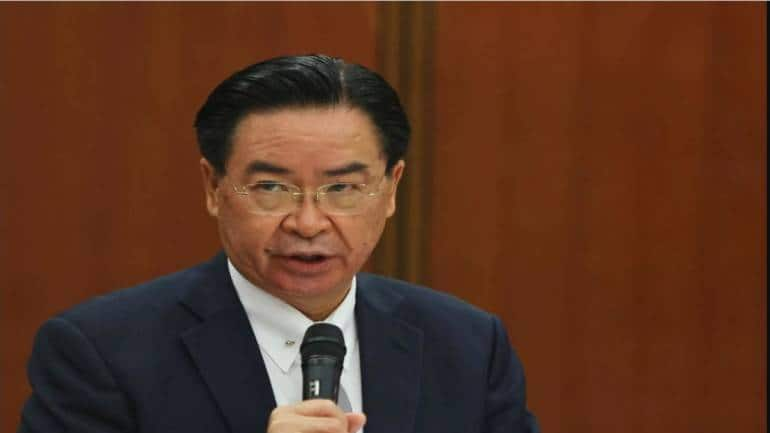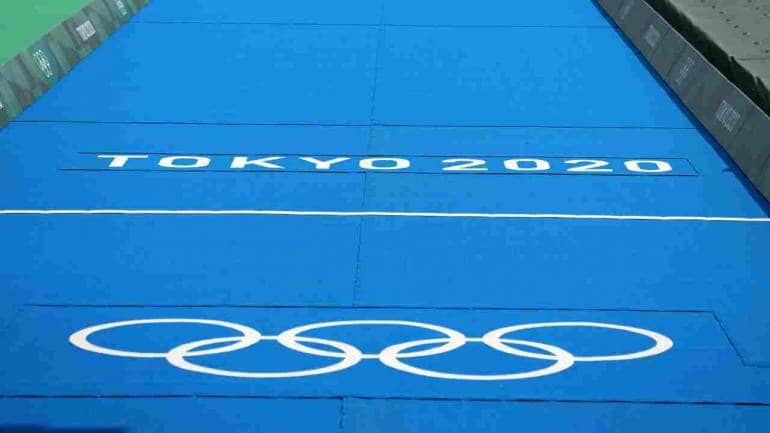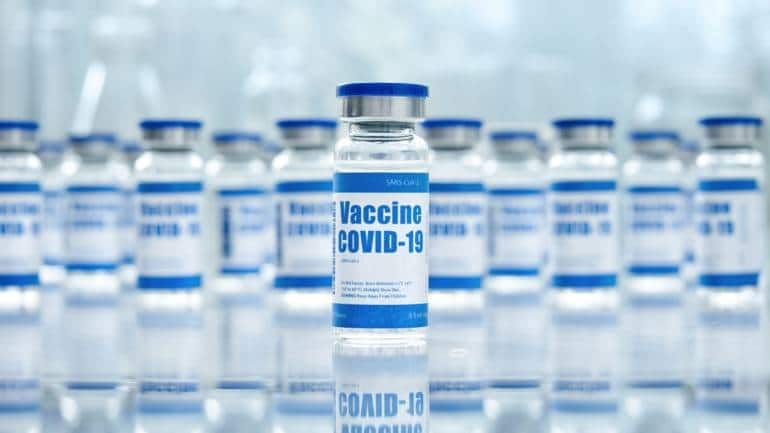Taiwan says China wants to ’emulate’ the Taliban
 ]
]
Taiwan’s foreign minister accused China on Saturday of wanting to “emulate” the Taliban, saying the island that Beijing claims as sovereign Chinese territory did not wish to be subject to communism or crimes against humanity.
The rapid fall of the US-backed Afghan government has sparked heated debate in Taiwan about whether they could suffer the same fate to a Chinese invasion, while state media in China has said Kabul’s fate showed Taiwan it cannot trust Washington.
Writing on Twitter in response to the US State Department reiterating a call for China to stop pressuring the island, Taiwan Foreign Minister Joseph Wu expressed his thanks to the United States for upholding the wishes and best interests of Taiwan’s people.
“They include democracy & freedom from communism, authoritarianism & crimes against humanity,” Wu said.
“China dreams of emulating the Taliban, but let me be blunt: We’ve got the will & means to defend ourselves,” Wu added, without elaborating.
There was no immediate response from China, whose Taiwan Affairs Office did not answer calls seeking comment outside of business hours on Saturday.
China has sought to build ties with the Taliban despite its own worries about the possible effect on what Beijing sees as Islamist extremists operating in China’s Xinjiang.
Afghanistan has become the latest issue Taiwan and China have sparred over.
Taiwan has complained of stepped up Chinese diplomatic and military pressure in recent months, including repeated air force and navy drills near the island, prompting concern in Washington and other Western capitals.
Taiwan is a rambunctious democracy whose people have shown little interest in being ruled by autocratic China.
Beijing has also been angered by US support for Taiwan even in the absence of formal diplomatic ties between Washington and Taipei, including regular US arms sales.
Why is Taiwan not called Taiwan at the Olympics?
 ]
]
(Representative image: Reuters)
Taiwan’s star weightlifter Kuo Hsing-chun won gold at the Tokyo Olympics on Tuesday, but when she ascended the podium to receive her medal there was no national flag and no national anthem to greet her.
Taiwan cannot even call itself “Taiwan” at the Games. Instead, it must use the title “Chinese Taipei”, a source of considerable frustration to many Taiwanese.
Here’s why:
What’s in a name?
Taiwan has been given a host of names at the Olympics over the years because of its peculiar international status.
Despite being a self-ruled democracy of 23 million people with its own borders, currency and government, Taiwan’s status remains disputed.
After the 1949 Chinese civil war ended, the losing Nationalists and their Republic of China government fled to Taiwan.
Mao’s winning communist forces founded the People’s Republic of China on the mainland.
Beijing’s communist leadership has never controlled Taiwan. But it still views the island as part of a “one China” and has vowed to seize it one day, by force if it needs.
It tries to keep Taipei isolated on the world stage and balks at any use of the word Taiwan.
Why Chinese Taipei?
That was the name Taipei settled on back in 1981 with the International Olympic Committee (IOC).
It was a compromise that would allow Taiwan to compete in sports without presenting itself as a sovereign nation.
Instead of Taiwan’s red and blue flag, Taiwanese athletes must compete under the “Plum Blossom Banner”, a white flag that carries the Olympic rings.
A traditional flag-raising song – not Taiwan’s national anthem – is played when athletes are on the podium.
Critics say the name is humiliating, noting that other disputed or unrecognised places, such as Palestine, get to use their own name and flag at the Olympics.
What were the previous names?
In 1952, both Taiwan and China were invited to the Olympics. Both governments claimed to represent China but, in the end, Taiwan dropped out.
Four years later, Taiwan joined the Olympics as “Formosa-China” – Formosa (beautiful) was the name Portuguese sailors gave Taiwan in the sixteenth century.
Beijing boycotted those games and quit the International Olympic Committee two years later.
For the 1960 games, Taiwan performed under the name Taiwan at the behest of the IOC.
But Taiwan’s then authoritarian government objected to that name – they wanted to be the Republic of China.
Taiwan participated in two more Olympics as Taiwan in the 1960s, including the 1964 Tokyo Games.
By the 1970s, more countries were starting to diplomatically recognise Beijing over Taiwan.
In 1972, Taiwan took part in the Olympics as the Republic of China for the last time.
Taiwan boycotted the 1976 Olympics after host country Canada demanded it compete as Taiwan instead of ROC.
It was then suspended in 1979 after the IOC recognised Beijing as the representative body for China.
And it was only allowed back in two years later after it agreed to compete as Chinese Taipei, the name it has used ever since.
Why is Taiwan popular again?
It is somewhat ironic that there are now growing calls for Taiwan to be allowed to use the name Taiwan given previous governments disliked that name in the past.
But much has changed in Taiwan since the 1970s.
Since the 1990s, Taiwan has morphed from a dictatorship into one of Asia’s most progressive democracies.
A distinct Taiwanese identity has emerged, especially among youngsters.
A referendum on whether “Chinese Taipei” should be changed was held in 2018, sparking warnings from both the IOC and Beijing.
But the referendum was lost, partly because top athletes opposed the vote, fearful they would be banned from major sporting events.
Current President Tsai Ing-wen – who won a landslide re-election last year – views Taiwan as a de facto sovereign nation and has pushed to use the name Taiwan more.
She wrote a message of thanks to Japan online after a news anchor announced Chinese Taipei as Taiwan during the opening ceremony.
In response, China’s state media tabloid the Global Times blasted Japan for “dirty political tricks”.
Aurobindo Pharma faces delay in getting its COVID-19 vaccine plan rolling
 ]
]
Representative image.
live bse live
nse live Volume Todays L/H More ×
Aurobindo Pharma, which is in the race to develop and manufacture a COVID-19 vaccine, said there has been some delay in the vaccine development at its partner’s end.
Aurobindo said its partner Vaccinity was in the process of seeking emergency use approval (EUA) from Taiwan in the second half of July. But now the approval may come only by September-October.
Aurobindo Pharma had entered into an exclusive agreement with US biotech company COVAXX in December 2020 to develop and manufacture COVID-19 vaccine UB-612 for India and UNICEF. COVAXX was renamed Vaxxinity in April 2021. UB-612 is based on virus-like particle (VLP) or peptide-based platform. Aurobindo Pharma has exclusive rights to develop and commercialise UB-612 in India and to UNICEF, and non-exclusive rights in other select emerging markets. Aurobindo Pharma can supply up to 480 million doses of UB-612 for India and other countries.
“They have already placed orders for 30 million doses (for contract manufacturing), they would pick up based on the approval of Taiwan (regulatory authorities), which is expected in two weeks to a month, based on that the contract manufacturing would begin,” said N Govindarajan, Managing Director of Aurobindo Pharma, at the company’s earnings call.
India timeline
COVID-19 Vaccine Frequently Asked Questions View more How does a vaccine work? A vaccine works by mimicking a natural infection. A vaccine not only induces immune response to protect people from any future COVID-19 infection, but also helps quickly build herd immunity to put an end to the pandemic. Herd immunity occurs when a sufficient percentage of a population becomes immune to a disease, making the spread of disease from person to person unlikely. The good news is that SARS-CoV-2 virus has been fairly stable, which increases the viability of a vaccine. How many types of vaccines are there? There are broadly four types of vaccine — one, a vaccine based on the whole virus (this could be either inactivated, or an attenuated [weakened] virus vaccine); two, a non-replicating viral vector vaccine that uses a benign virus as vector that carries the antigen of SARS-CoV; three, nucleic-acid vaccines that have genetic material like DNA and RNA of antigens like spike protein given to a person, helping human cells decode genetic material and produce the vaccine; and four, protein subunit vaccine wherein the recombinant proteins of SARS-COV-2 along with an adjuvant (booster) is given as a vaccine. What does it take to develop a vaccine of this kind? Vaccine development is a long, complex process. Unlike drugs that are given to people with a diseased, vaccines are given to healthy people and also vulnerable sections such as children, pregnant women and the elderly. So rigorous tests are compulsory. History says that the fastest time it took to develop a vaccine is five years, but it usually takes double or sometimes triple that time. View more Show
Moneycontrol learnt from sources that the Indian trials of UB-612 have not yet taken off despite Aurobindo’s partner Vaxxinity got a go-ahead from CDSCO to conduct Phase II and Phase III clinical trials in June this year.
“Trials in India to be conducted by the partner, so we wouldn’t be able to comment,” Aurobindo spokesperson told Moneycontrol.
The company also said it will not be able to share any anticipated timelines on vaccine launch in India, as it would depend “on the outcome of trials.”
Govindarajan earlier said Vaxxinity has appointed certain CROs (contract research organisations) to conduct a clinical trial, and they are expected to initiate it in the next few weeks.
Aurobindo is setting up a new facility to manufacture viral vector vaccines with an investment of Rs 250-Rs 275 crore. The company’s upcoming vaccine facility will have the capacity to manufacture 400 - 450 million doses of COVID-19 vaccines.
Analysts doubt whether the UB-612 vaccine will make it to the Indian market in 2021.
“Delays to get the clinical trials rolling and approvals on time mean that Aurobindo risks losing out on the COVID-19 vaccine opportunity,” an analyst at a Mumbai-based brokerage firm, who didn’t want to be named, said.
India has so far approved six COVID-19 vaccines – Serum Institute of India’s Covishield, Bharat Biotech’s Covaxin, Sputnik V, Zydus Cadila’s ZyCoV-D, Moderna and Johnson & Johnson vaccines. While Covishield remains the workhorse for India’s COVID-19 vaccines, Covaxin is seeing a ramp-up of supplies. Sputnik V supply also is expected to go up from October.